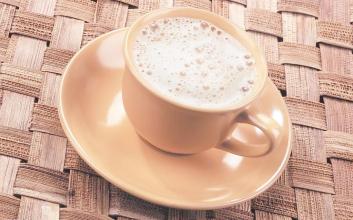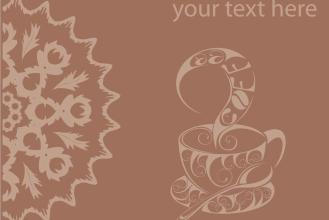Is the blue mountain coffee bean baked deeply or lightly?
Is the blue mountain coffee bean baked deeply or lightly?
In 1717 King Louis XV of France ordered the cultivation of coffee in Jamaica for twenty years.
Blue Mountain Coffee
Blue Mountain Coffee
In the mid-1970s, the Governor of Jamaica, Sir Nicholas Lloyd (Nicholas Lawes), imported Arabica seeds from Martinique and began to plant them in St. Andrew. To this day, St. Andrews is still one of the three major producers of Jamaican Blue Mountain Coffee, with the other two producing areas: Portland (Portland) and St. Thomas (St.Thomas). In eight years, Jamaica exported more than 375 tons of pure coffee. In 1932, coffee production reached its peak and more than 15000 tons of coffee was harvested.
In 1950, the Government of Jamaica established the Jamaica Coffee Industry Committee (the Jamaica Coffee Industry Board), which sets quality standards for Jamaican coffee and oversees the implementation of quality standards to ensure the quality of Jamaican coffee. The Commission awarded special official seals to raw and roasted coffee exported from Jamaica, which is the highest-level national coffee institution in the world. The origin of Blue Mountain Coffee can be represented by Mavis Bank Coffee Factory (M.B.C.F), Blue Mountain Coffee Co-operative Factory (M.H.C.C.T.), Portland Blue Mountain Coffee Cooperative Factory (P.X.X.S.H.), Coffee Industry Association (Wallenford), Coffee Industry Association (St. John Peak) and J.A.S.
By 1969, the situation had improved because the use of Japanese loans had improved the quality of production, thus ensuring the market. By now, this kind of coffee has reached the point of being feverishly loved.
By 1981, about 1500 hectares of land in Jamaica had been reclaimed for coffee cultivation, followed by the opening of another 6000 hectares of coffee land. In fact, today's Blue Mountain area is a small area with a planting area of only 6000 hectares, and it is impossible to grow all the coffee marked "Blue Mountain" there. Another 12000 hectares of land is used to grow two other types of coffee: Alpine top coffee and Jamaican premium coffee.
However, as a roaster, the decision on the roasting level of coffee should not only start from the roaster's personal fun and hobby, but should focus on the needs of the audience, so shallow baking is reasonable, deep baking has deep baking principle. There is no good or bad agreement between the two. If your servant pursues the taste and the local characteristics of the coffee, then light baking can make your customers more aware of what they are important. On the contrary, assuming that your servant is in love with round, barren, mellow, and sweet coffee, then moderate deep baking is a good contrast. But Uncle Dou wants to say a word for the roasters of deep-roasted coffee. Many shallow-roasted roasters believe that in deep-roasted coffee, there is no other flavor except bitterness, and the flavor of coffee dissipates in deep roasting. How subjective the statement is. A roaster who is good at deep roasting coffee, not only is there no burning smell in his coffee, but the cub can also feel the richness of the coffee. That is to say, a person who can only bake coffee to black oil, and the smell of smoke is extremely violent, he is not a baker, but a charcoal burner.

Important Notice :
前街咖啡 FrontStreet Coffee has moved to new addredd:
FrontStreet Coffee Address: 315,Donghua East Road,GuangZhou
Tel:020 38364473
- Prev

Variety introduction of taste treatment method for manor flavor description in coffee bean producing area of Kenya
The variety introduction of the manor flavor description in the coffee bean producing area in Kenya was first brought to Kenya by Bourbon bourbon. In the 1950s, through unremitting efforts, the then agricultural research institution Scott Laboratory selected two excellent hybrids, SL-28 and SL-34, subverting the fact that artificial breeding is not as good as natural varieties for a long time.
- Next

Flavor Description of Burundi Fine Coffee Bean Taste Manor Area Treatment Introduction
Burundi fine coffee beans flavor description Taste estate production area treatment method Introduction capital Bujumbura population of 393,000 (2012) is Burundi political, economic and cultural center. Bujumbura was formerly known as usumbra. West of the border, north of the eastern end of Lake Tanganyika. The average annual temperature ranges from 22 to 26 degrees Celsius. The city has mountains and lakes on its back, pleasant climate and scenery.
Related
- Detailed explanation of Jadeite planting Land in Panamanian Jadeite Manor introduction to the grading system of Jadeite competitive bidding, Red bid, Green bid and Rose Summer
- Story of Coffee planting in Brenka region of Costa Rica Stonehenge Manor anaerobic heavy honey treatment of flavor mouth
- What's on the barrel of Blue Mountain Coffee beans?
- Can American coffee also pull flowers? How to use hot American style to pull out a good-looking pattern?
- Can you make a cold extract with coffee beans? What is the right proportion for cold-extracted coffee formula?
- Indonesian PWN Gold Mandrine Coffee Origin Features Flavor How to Chong? Mandolin coffee is American.
- A brief introduction to the flavor characteristics of Brazilian yellow bourbon coffee beans
- What is the effect of different water quality on the flavor of cold-extracted coffee? What kind of water is best for brewing coffee?
- Why do you think of Rose Summer whenever you mention Panamanian coffee?
- Introduction to the characteristics of authentic blue mountain coffee bean producing areas? What is the CIB Coffee Authority in Jamaica?

